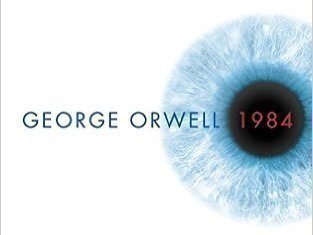

I first read Orwell in Russian. The year was 1990, I think, and a Russian magazine to which my parents subscribed serialized 1984. I read everything that came into the house, so I read this too. Of course, as a nine-year-old I did not understand it fully. In retrospect, I am still amazed that it was published, but then (as I now know), post 1989, all kinds of previously banned works were suddenly pouring out for the benefit of all who had the desire to read them.
This week, I re-read Orwell’s essay “Politics and the English Language” (1946), which has aged remarkably well. I have previously loved teaching it to undergrads, and now I am thinking that my own nine-year-old may be ready to read it at last. In this essay, Orwell spares no punches in advocating for writing that is intellectually honest. Indeed, if asked to describe what makes writing good in a single word, Orwell would probably have said, truth. He condemns political language that is filled with euphemisms, all to disguise insincerity and utter corruption of thought, belief, action:
In our time it is broadly true that political writing is bad writing. Where it is not true, it will generally be found that the writer is some kind of rebel, expressing his private opinions, and not a ‘party line’. Orthodoxy, of whatever colour, seems to demand a lifeless, imitative style. The political dialects to be found in pamphlets, leading articles, manifestos, White Papers and the speeches of Under-Secretaries do, of course, vary from party to party, but they are all alike in that one almost never finds in them a fresh, vivid, home-made turn of speech. When one watches some tired hack on the platform mechanically repeating the familiar phrases – bestial atrocities, iron heel, blood-stained tyranny, free peoples of the world, stand shoulder to shoulder – one often has a curious feeling that one is not watching a live human being but some kind of dummy: a feeling which suddenly becomes stronger at moments when the light catches the speaker’s spectacles and turns them into blank discs which seem to have no eyes behind them. And this is not altogether fanciful. A speaker who uses that kind of phraseology has gone some distance toward turning himself into a machine. The appropriate noises are coming out of his larynx, but his brain is not involved as it would be if he were choosing his words for himself.
So why is this a problem? Why might we bother being, well, bothered by poor political rhetoric of the kind we have been hearing this summer and fall? Why should Trump’s insistence on his 2020 electoral victory matter, despite decisive proof to the contrary? Or why should we care about Harris’s twisting of language to support abortion? Or why should we be concerned about J. D. Vance’s infamous falsehood about pet-eating immigrants? Orwell has an answer here:
if thought corrupts language, language can also corrupt thought. A bad usage can spread by tradition and imitation, even among people who should and do know better.
Poor political rhetoric corrupts societal language more broadly, it corrupts and warps our very imagination–not only in the realm of politics but in our interactions with each other in other spheres. And these effects of bad political language are much more damaging and dangerous than we might realize at first glance.